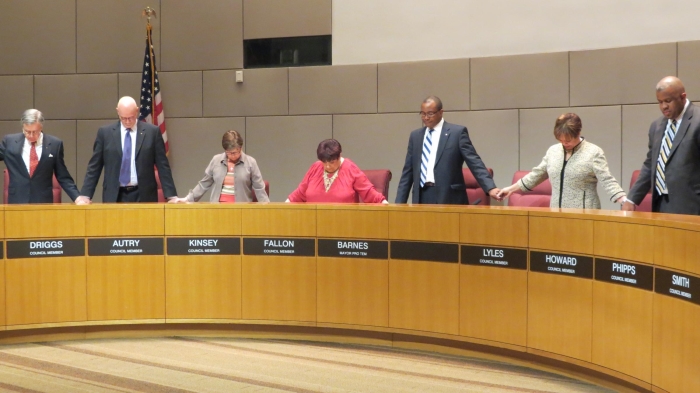The Supreme Court of Canada has reversed its decision regarding the constitutionality of public prayer at municipal council meetings.This brings up the longstanding issue that has received much public attention since last year’s debate over the Charter of Values: What role should religion play in Canadian political society?
Those who support the prayers argue that their recitation is a long-standing tradition in Canada. Despite the clear Christian themes of many council meetings, including crucifixes and statues of Jesus decorating the walls, defenders maintain that their prayers are non-denominational, and therefore do not infringe on freedom of religion.
As pointed out in a blog post by the Canadian Constitution Foundation, it is important to distinguish between freedom of religion and freedom from religion.
The Canadian Charter of Rights and Freedoms guarantees the freedom of religion. What this has meant historically, is that all Canadians have the right to freely practice their own religion—what is not included in the charter, however, is a freedom from religion; the freedom from having other religions imposed upon oneself. This is not necessarily an issue for those who practice religions other than Christianity. They are free to practice however they please; in the context of the council meetings, they have the right to engage in their own prayers too. This would allow for the open practice of a variety of different religions. The problem lies with those who are not religious, and wish to have their beliefs respected by not being forced to engage in any type of prayer.
Among such opponents of the practice of praying in the council meetings is Alain Simoneau, the self-described non-believer who was the first to challenge the practice of council prayers in his hometown of Saguenay, Quebec. The Quebec Secular Movement argue that the prayers are exclusive and discriminatory to all non-Christians, and that they represent an attempt to impose religious worship. So how far should the state go in respecting religious differences?
The best solution would be to ban any type of prayer from the council meetings, and encourage members to freely engage in prayer before the meetings in separate spaces.
In a similar case in the United States, the Supreme Court ruled that prayers in council meetings remain constitutional as long as they do not disparage or proselytize non-Christians. However, the interpretation of what constitutes disparagement is very subjective. Therefore, the Supreme Court of Canada may have a very different idea of whether or not the council meetings represent exclusion of or pressure against non-Christians. Ultimately, it is determined on a case-by-case basis. In the Canadian case of R. v. Big M Drug Mart, for example, the Supreme Court ruled in favor of a drugstore that had been accused of violating the charter for selling merchandise on Sunday, contrary to the Lord’s Day Act. The Court held that the Act violated the charter’s guarantee of freedom of religion because it enforced a Christian religious observance. A similar argument could be made about the practice of prayers in council meetings.
In civic settings such as the council meetings, religion should not play a role. Council members should have the right to privately engage in prayers separately from the council meetings. The practice of praying during the meetings is inappropriate because it excludes non-Christians. The inclusion of every type of religion during the council meetings is not realistic either, nor would it solve the situation facing those who aren’t religious. The best solution would be to ban any type of prayer from the council meetings, and encourage members to freely engage in prayer before the meetings in separate spaces.









